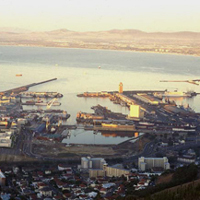Cities and Urban Waterfront: Transformations and Opportunities
Abstract
In the wide and complex panorama of urban transformation, waterfront revitalization is one of the most interesting phenomena of urban renewal of the last decades, bringing ‘cities on water’ around the world to a new leadership. After years of oblivion, the presence of the natural element –water – have shown to be of great appeal as an attractive pole for the quality of every day’s life. In particular, the visual contact with water together with pedestrian paths along the waterfronts and the implementation of waterborne transports, where possible, are giving an added value to these areas, becoming even more interesting in terms of Real Estate. Now spread out and developed at a global dimensions, involving both, big cities but also medium and small-scale cities at all latitudes and in all continents, waterfront regeneration is in many cases the starting point for the regeneration of the city itself and of its relocation in the international context. Under this point of view, marine, port and fluvial cities can be considered laboratories for the process of urban renewal in terms of residential, transports, public spaces and quality of the environment, in view of both, the broad range of cases and the quality of the results. In light of its 20-year long activity in terms of monitoring and studying best practices in the field of waterfront revitalisation, the Centre Cities on Water carried-out an international overview, developing a comparative analysis of the key element for the success of these operation. To this regards, a selection of case-studies has been identified at international level, according to the main ‘ingredients’ for a sustainable cohabitation between ports and cities and for a lasting success in waterfront regeneration processes. Water quality, public and free access and to water, public spaces, gradual and flexible development and shared participation in the entire process as well as a mix of functions and uses and the collaboration between public and private entities are some of the key aspects that needs to be taken into account in new interventions. These elements, summarized in the 10 Principles for a Sustainable Development of Urban Waterfront Areas, elaborated years ago by the Centre Cities on Water, together with the German company Wasserstadt (Berlin), can be the hinge for a wide and shared transformation process as well as the key for a positive impact at urban and territorial scale.Downloads

Copyright (c) 2014 Tema. Journal of Land Use, Mobility and Environment

This work is licensed under a Creative Commons Attribution 4.0 International License.
Authors who publish in this journal agree to the following:
1. Authors retain the rights to their work and give in to the journal the right of first publication of the work simultaneously licensed under a Creative Commons License - Attribution that allows others to share the work indicating the authorship and the initial publication in this journal.
2. Authors can adhere to other agreements of non-exclusive license for the distribution of the published version of the work (ex. To deposit it in an institutional repository or to publish it in a monography), provided to indicate that the document was first published in this journal.
3. Authors can distribute their work online (ex. In institutional repositories or in their website) prior to and during the submission process, as it can lead to productive exchanges and it can increase the quotations of the published work (See The Effect of Open Access)
